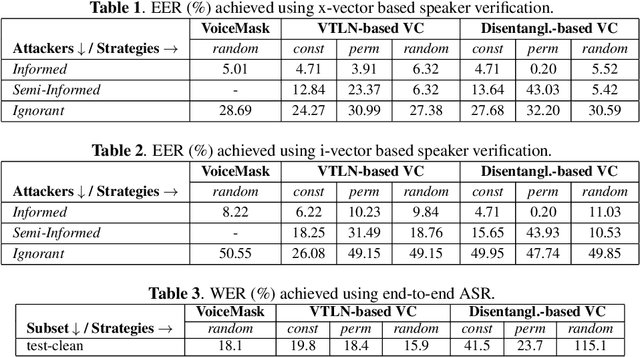Evaluating Voice Conversion-based Privacy Protection against Informed Attackers
Paper and Code
Nov 10, 2019

Speech signals are a rich source of speaker-related information including sensitive attributes like identity or accent. With a small amount of found speech data, such attributes can be extracted and modeled for malicious purposes like voice cloning, spoofing, etc. In this paper, we investigate speaker anonymization strategies based on voice conversion. In contrast to prior evaluations, we argue that different types of attackers can be defined depending on the extent of their knowledge about the conversion scheme. We compare two frequency warping-based conversion methods and a deep learning based method in three attack scenarios. The utility of the converted speech is measured through the word error rate achieved by automatic speech recognition, while privacy protection is assessed by state-of-the-art speaker verification techniques (i-vectors and x-vectors). Our results show that voice conversion schemes are unable to effectively protect against an attacker that has extensive knowledge of the type of conversion and how it has been applied, but may provide some protection against less knowledgeable attackers.
 Add to Chrome
Add to Chrome Add to Firefox
Add to Firefox Add to Edge
Add to Edge